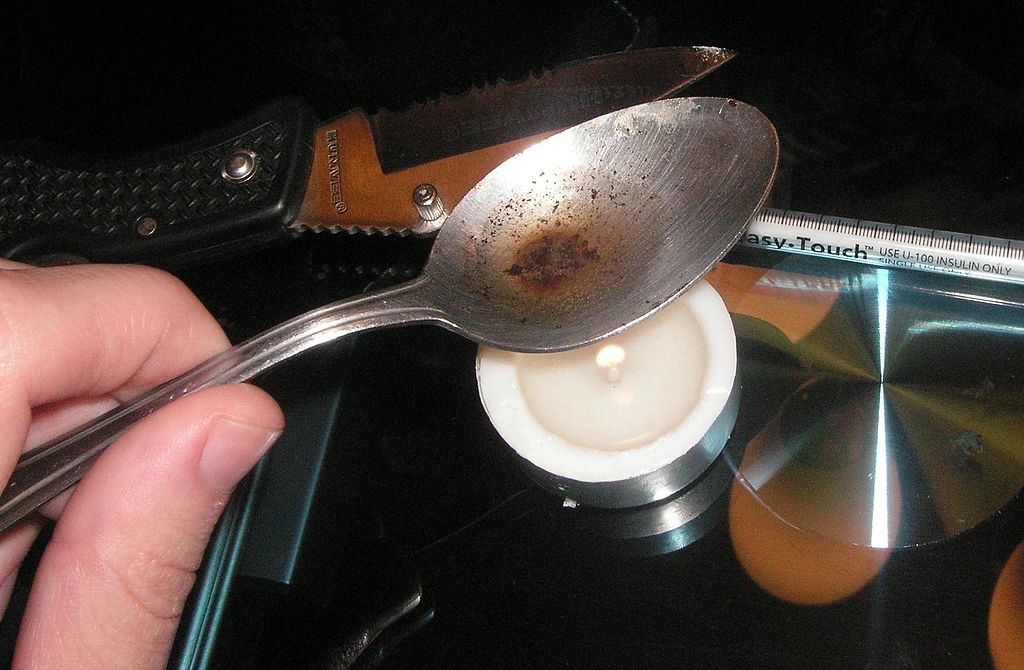Nygren, Sidener Dramatize Opioid Problem
Daughter of GOP legislator and former Democratic leader’s problems call for state response.
Addiction is a cruel illness. And it knows no boundaries.
That fact has never been more evident in Wisconsin, where one prominent Republican legislator’s daughter and one former state Democratic Party executive director have been in the news relating to apparent overdose deaths.
Cassandra Nygren, daughter of Republican State Rep. John Nygren, is facing first-degree reckless homicide charges and more relating to an apparent overdose death of a woman and her unborn child in Brown County.
Tragically, this is not the first time Cassandra Nygren has had legal issues relating to drugs, despite efforts at sobriety.
According to online court records, Cassandra Nygren went to prison for a 2009 narcotic drugs case and was on probation and served jail time for a 2014 narcotic drugs case.
It is often through personal suffering that people affected are motivated to spark change, and that is evident through what Cassandra Nygren’s father has done. Since 2013, John Nygren has sponsored at least 30 bills relating to drug addiction.
In other news, the home of former state Democratic Party Executive Director Jason Sidener was searched by law enforcement after a woman died from another apparent drug overdose last month.
According to the Wisconsin State Journal, the search warrant indicates Sidener took the woman to the hospital after she was “breathing really weird.” The woman was dead upon arrival.
The investigation is ongoing, and no arrests or charges have been filed in the case.
Drug overdose deaths, especially relating to heroin, are a major problem in Wisconsin. Between 2010 and 2012, 1,381 people died of opioid-related overdoses. That number rose to 1,524 between 2013 and 2015 in Wisconsin.
So, what do we do as a society? How do we make our communities safe? With the understanding that there will always be drug issues to a certain extent, how do we prevent them from occurring as best we can?
While punishment and incarceration may be necessary for some, we cannot imprison our way out of the problem of addiction. It hasn’t worked. We can’t keep doing the same thing over and over again and expect a different result.
Countless people with addiction fill our state’s jails and prisons.
Our nation incarcerates more people per capita than any other country on Earth. With just 5 percent of the world’s population, we incarcerate 25 percent of the world’s prison population.
From 1970 to 2005, the prison population in the United States rose by a staggering 700 percent. The Wisconsin Taxpayers Alliance analysis found that between 1995 and 2015, Wisconsin’s per capita incarceration rate nearly doubled.
Addiction is a disease of the brain and body. It is not a moral failing.
Addicts are not, on the whole, bad people. The most prominent, largest association of doctors in the United States, the American Medical Association, classifies addiction as a disease.
Rather than ridiculing and chastising addicts who make mistakes or bad decisions, we ought to be encouraging them in their recovery. Alcohol and drug treatment is, by far, the best means to treat addiction and to ultimately prevent crime from recurring. While there is an extremely limited amount of addiction-related treatment available in prison, the fact is prisons and jails are largely not equipped and do not have the necessary resources to deal with addicts.
We desperately need far more alcohol and drug treatment options available for all people, not just those few who can afford extremely expensive intensive treatment. Limited insurance coverage for treatment and a lack of sufficient medication-assisted treatment are enormous barriers to solving this epidemic.
Addicts will often relapse or “fall off the wagon.” This should not be viewed as a failure for which we, as a society, deem that person hopeless. Addiction specialists, medical doctors and neuroscientists understand relapsing is part of the process of recovery.
If we want to make a real impact on crime reduction and public safety, we must understand and treat addiction for what it is — a disease, not a moral failing.
Casey Hoff is a criminal defense attorney based in Sheboygan.
This op ed originally ran in the Sheboygan Press.
More about the Opioid Crisis
- Baldwin Demands Trump Admin Reverse Billions in Cuts From Opioid and Mental Health Programs - U.S. Sen. Tammy Baldwin - Jan 14th, 2026
- Fox Valley Nurse Practitioner Sentenced to Federal Prison for Unlawful Prescribing - U.S. Department of Justice - Dec 29th, 2025
- County Executive David Crowley Hosts Roundtable on Combating Opioid Crisis and Saving Lives in Wisconsin - David Crowley - Dec 16th, 2025
- Co-Chairs Criticize DHS For Lack of Plan, Transparency with Opioid Settlement Funds - Joint Committee on Finance - Oct 21st, 2025
- Opioid Treatment Program Opens First Clinic in Milwaukee - Isiah Holmes - Oct 20th, 2025
- County Executive Crowley, Chairwoman Nicholson Sign Legislation Approving $9 Million for Efforts to Compat the Opioid Crisis - David Crowley - Aug 15th, 2025
- How Are State’s Local Governments Spending Opioid Settlement Payouts? - Addie Costello - Aug 4th, 2025
- MKE County: How County Will Spend $9 Million in Drug Settlement Funds - Graham Kilmer - Jul 29th, 2025
- Milwaukee County Executive David Crowley Announces Over $9 Million for Initiatives to Combat Opioid Epidemic - David Crowley - Jul 17th, 2025
- AG Kaul, 45 Other Attorneys General Plan to Join $720 Million Settlement with Eight Opioid Drug Makers - Wisconsin Department of Justice - Jul 14th, 2025
Read more about Opioid Crisis here
Op-Ed
-
Wisconsin Candidates Decry Money in Politics, Plan to Raise Tons of It
 Dec 15th, 2025 by Ruth Conniff
Dec 15th, 2025 by Ruth Conniff
-
Trump Left Contraceptives to Rot; Women Pay the Price
 Dec 8th, 2025 by Dr. Shefaali Sharma
Dec 8th, 2025 by Dr. Shefaali Sharma
-
Why the Common Council’s Amended Budget is Good Policy for Milwaukee
 Nov 20th, 2025 by Alds. Marina Dimitrijevic and Russell W. Stamper, II
Nov 20th, 2025 by Alds. Marina Dimitrijevic and Russell W. Stamper, II
























shame on Urban Milwaukee for using the spoon and candle to sensationalize the issue of heroin addiction. Are you afraid that no one will read the OP ED if you don’t flash the most negative image you can fin?